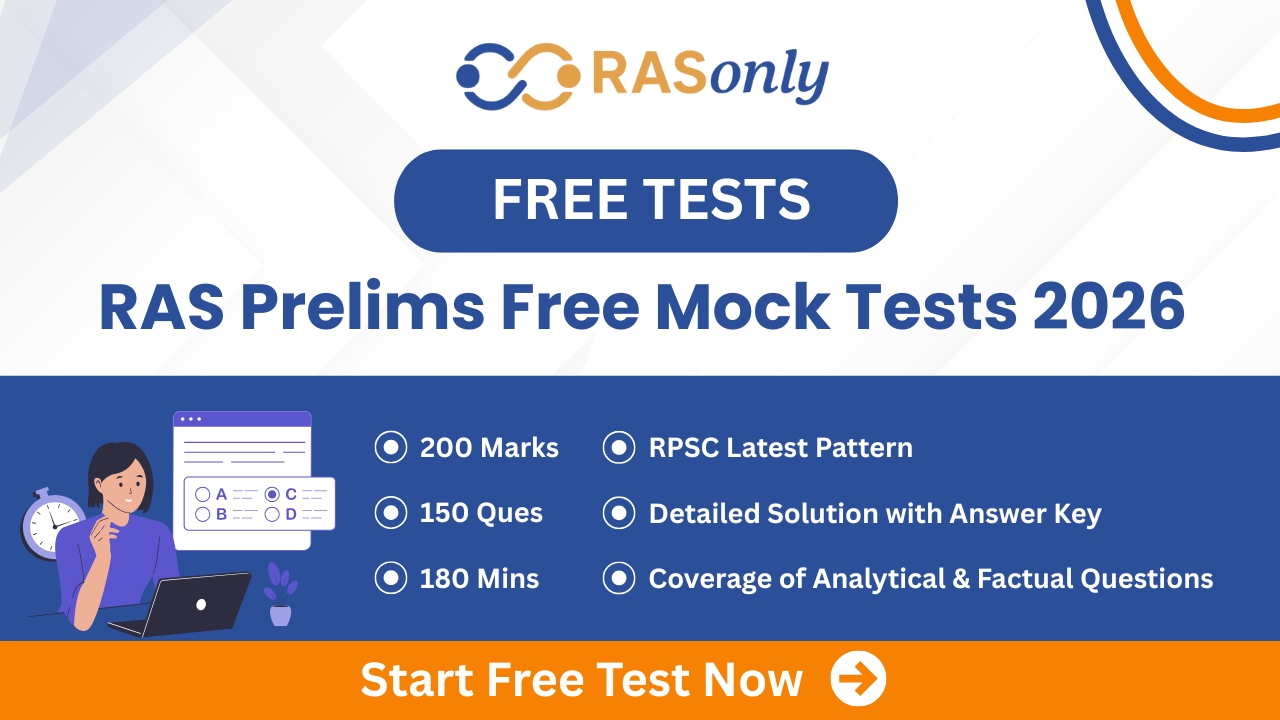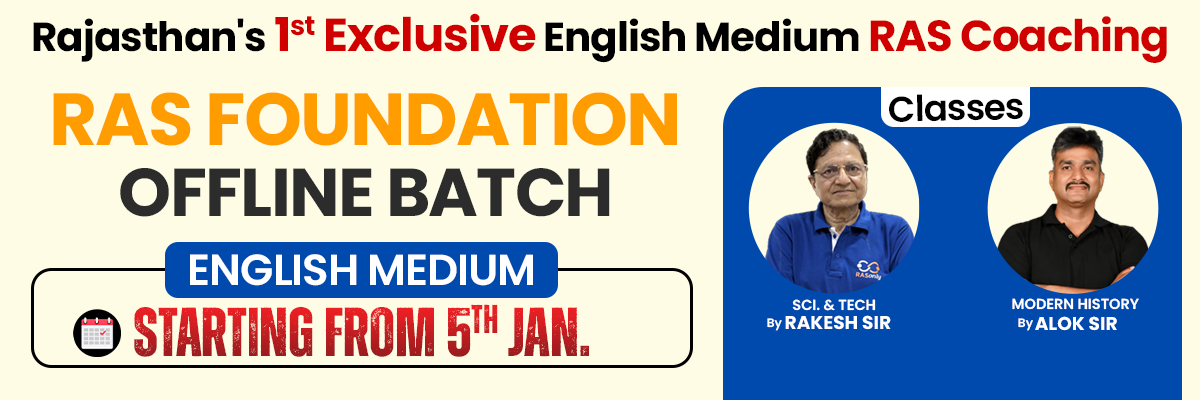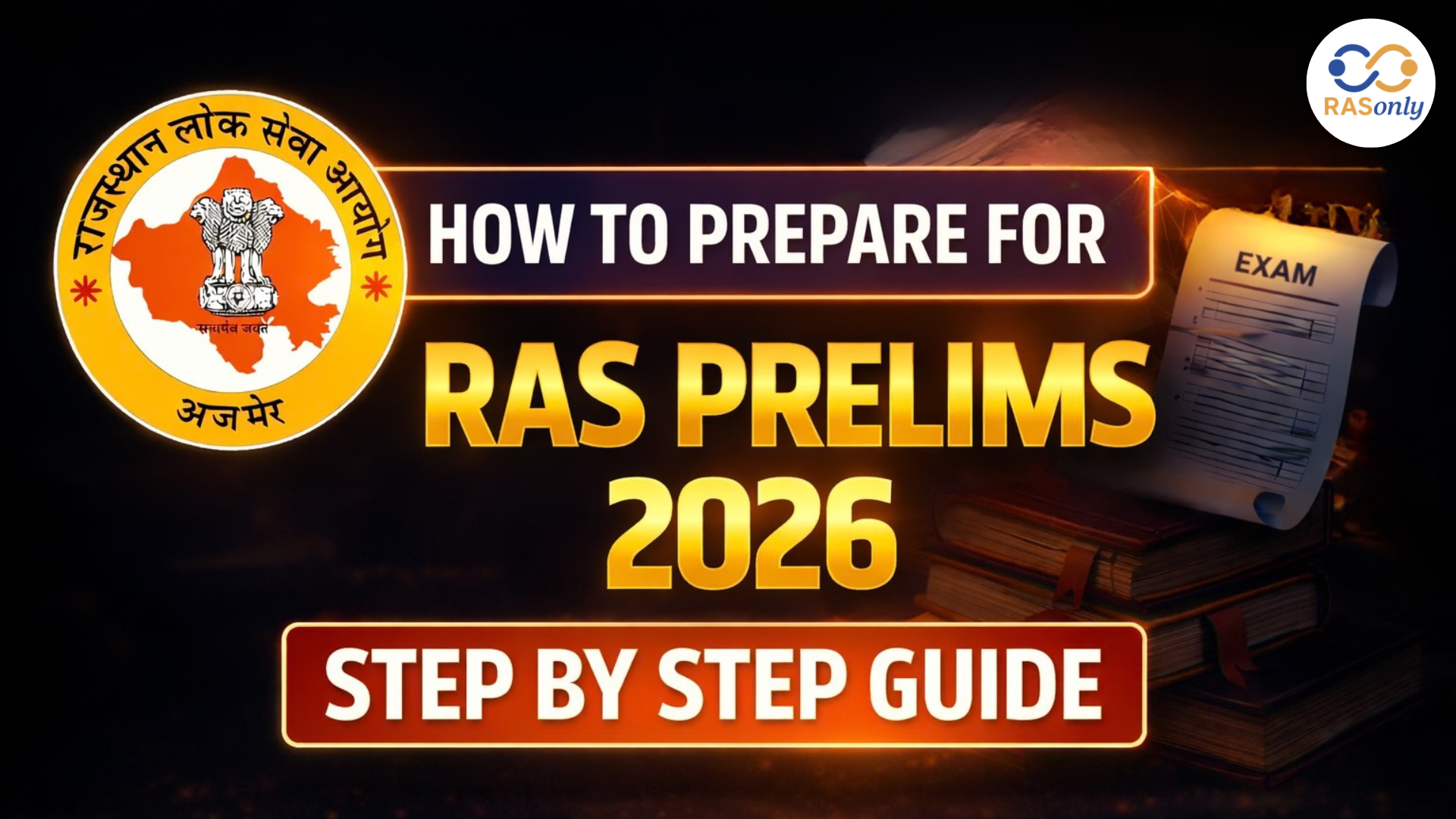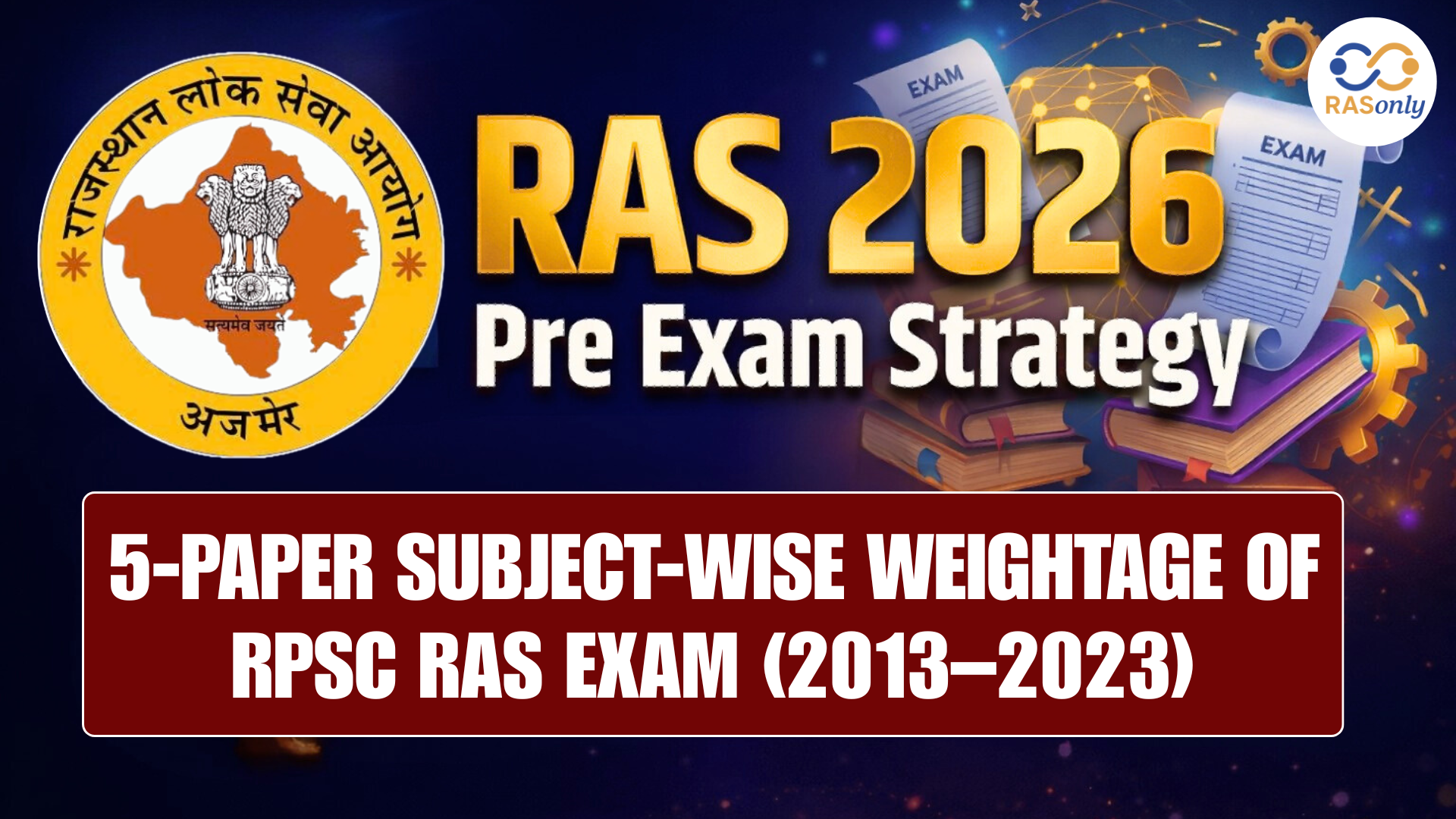RAS Prelims 2023 History & Culture Analysis: India, Rajasthan, and Art & Culture Breakdown
RAS Officer's Rank and Responsibilities Explained

Get in Touch with RASonly!

The Rajasthan Administrative Service (RAS) is an important institution in the governance of the state in the implementation of policies, administration and the well-being of the people. The RAS officers are based at the district and state levels, where they deal with law and order and revenue and development programs, and the career growth is structured and they have chances of advancing their careers to higher administrative positions.

Rajasthan Administrative Service is a very crucial part of the governance and administration of the state, as it puts together the bureaucratic system of the state. Primary responsibilities of the RAS officers consist of policy implementation, administering administrative tasks and the role of people welfare. RAS officers serve on various posts, ranging from local district heads to statewide project managers. This blog discusses the rank structure of RAS officers along with the key responsibilities of the same and the requirements to be a successful career officer in this noble service, as well as offers comprehensive advice to the prospective civil servant and anyone willing to know the administrative obligations in Rajasthan.
What is RAS (Rajasthan Administrative Service)?
The Rajasthan Administrative Service (RAS) functions as a state-based civil services examination that maintains its status as a prestigious public sector in Rajasthan. The service fulfills a fundamental purpose for the state government by executing programs and policies along with laws created by the administration. RAS officers function under the Rajasthan state government while offering leadership and management capabilities across all administrative levels, starting from districts and extending to the state. The RAS differs from its national-level counterpart, IAS, because it functions exclusively for Rajasthan state while offering equivalent administrative duties within the state administration.
RAS officers manage revenue operations together with law enforcement duties, as well as public welfare initiatives and emergency response functions. The role of these officers establishes connections between government authorities and community members to deliver benefits from policy initiatives and development projects at local population centers. The public holds RAS officers as the fundamental element of Rajasthan's administrative structure, while their responsibilities extend to maintaining law and order and performing judicial duties, and governing the state, making their efforts essential for Rajasthan's progress and development.
RAS vs IAS: Key Differences
The RAS and IAS represent two prestigious civil services positions with standout distinctions between them. The main distinction exists in geographical control because IAS officers serve at both the central and state government levels, but RAS officers exclusively work within the boundaries of the state. RAS officers dedicate their careers to state governance, while IAS officers serve the central government. Various RAS officers can progress to become IAS officers, and this advancement opportunity attracts numerous RAS aspirants.
Comparison Between RAS and IAS
| Aspect | RAS (Rajasthan Administrative Service) | IAS (Indian Administrative Service) |
|---|---|---|
| Jurisdiction | State-level, confined to Rajasthan | National-level, can be posted anywhere in India |
| Cadre | State cadre (Rajasthan) | All-India cadre (assigned to any state or union territory) |
| Recruitment | Conducted through the RAS exam by the Rajasthan Public Service Commission (RPSC) | Conducted through the UPSC Civil Services Examination (CSE) |
| Roles and Responsibilities | Overseeing state-level administrative functions, managing revenue, law enforcement, and welfare at the district/state level | Managing central or state government policies, administration, and law enforcement at the national or state level |
| Promotion | RAS officers can be promoted to IAS after gaining experience and fulfilling the criteria | IAS officers are generally promoted to higher national-level positions, such as Secretary, Cabinet Secretary, etc. |
| Posting Location | Primarily within Rajasthan | Can be posted anywhere in India and abroad (in Indian embassies, international organizations) |
| Control | Controlled by the Rajasthan state government | Controlled by the central government |
| Career Progression | RAS officers have opportunities for state-level promotions and later induction into the IAS | IAS officers are promoted based on seniority and national-level vacancies |
| Career Opportunities | Primarily within the Rajasthan state administration and governance | National-level opportunities, including central ministries, international assignments, and top administrative positions |
How RAS Officers Contribute to State Governance?
RAS officers function as the primary executive element that leads the state development programs. The execution of district administrative functions, together with state policy, depends on RAS officers because they distribute resources and services throughout every location of the state. The public policies of Rajasthan transform the leadership of RAS officers who serve the people with their expertise in healthcare education infrastructure and welfare schemes. RAS officers must master governance along with law, knowledge and public administration, and economics to handle their diverse responsibilities.
The RAS Officer Ranks: A Breakdown
Overall, the Rajasthan Administrative Service (RAS) features a set progression for career advancement that benefits its officers. The administrative responsibilities of RAS officers increase alongside their rank advancement, while they begin to handle responsibilities that become progressively more complex. The following table demonstrates the different levels of RAS ranks together with their essential task requirements.
Entry-Level Rank (Sub-Collector or Deputy Collector)
RAS officers begin their career by working either as Sub-Collectors or Deputy Collectors who lead revenue administration and handle land records while upholding law and order across their designated territories. RAS officers actively implement government policies as they tackle public issues across local communities.
Mid-Level Rank (Additional District Magistrate (ADM))
The ADM fulfills two functions by assisting the District Magistrate with administrative responsibilities while managing essential departments within the district. As part of their duties, the ADM supervises the activities of police departments, revenue services, and public welfare initiatives and can temporarily fill in for the District Magistrate role.
Senior-Level Rank (District Collector or Divisional Commissioner)
District Collectors, alongside Divisional Commissioners, have the responsibility to supervise districts or divisions while enforcing government directives for revenue operations and law enforcement functions. They maintain substantial power because their position positions them as the primary administrative leader throughout their district area.
Promotional Ranks (IAS Induction)
RAS officers can join the Indian Administrative Service (IAS) upon completing their years of experience and satisfying the necessary promotion requirements. During this step, RAS officers begin serving at the national level to administer major government programs and serve as representatives of India in administrative leadership positions.
Skills and Qualifications Required for RAS Officers
The path to becoming a Rajasthan Administrative Service (RAS) officer demands educational standards, together with specific competencies and character traits. RAS officers must fulfill multiple duties, so they need complete intellectual preparation alongside practical expertise. The following section provides all essential qualifications and needed skills to perform successfully as a prestigious RAS officer.
Skills Required for RAS Officers
1. Leadership and Decision Making
- The officers at RAS are required to be good leaders because they will have to steer others and make meaningful decisions.
- They must take quick decisions in case of emergencies and organize government plans along with their daily working administrative activities.
2. Communication Skills
- Strong verbal and writing skills are vital when communicating with the authorities and the citizens as well as politicians.
- Proper communications assist in the writing of reports, giving orders and also attending to the grievances of people.
3. Analytical skills and problem solving capacity
- Officers have to deal with complicated cases, which require swift and reasonable choices.
- Good analytical based skills are efficient to recognize the undermining problems and apply the most efficient solution as soon as possible.
4. Organizational skills and Time Management
- RAS officers have several roles to perform, including disaster management to revenue administration.
- Proper time and task management is very essential in the smooth running of the district.
Qualifications Required for RAS Officers
1. Minimum Educational Qualification
- The candidates should have a bachelors degree in any recognized University.
- The field of the study is not limited the graduates of every course are welcome.
2. Age Limit
- The age of the applicants should be 21 years and above.
- Age limits are also upper as per the category (e.g., SC/ST, OBC, EWS, etc), which means anyone, both fresh graduates and working professionals, are eligible to take part in the selection process as well.
3. Knowledge about Rajasthan
- It is necessary to have good knowledge of the history of Rajasthan, geography of Rajasthan, culture in Rajasthan and latest happenings in the state.
- The candidates are advised to be stay updated of state developments, programs and socio-economic concerns.
RAS Officer Career Growth and Promotions
RAS (Rajasthan Administrative Service) officers experience sequential and established career advancement and promotional opportunities. Officers' ranking progresses as they accumulate experience and show their skills, leading to possibilities for an Indian Administrative Service (IAS) position elevation.
Read More at: The Future of RAS Officers
Challenges Faced by RAS Officers
The multiple challenges faced by RAS officers span their careers because of the complex and dynamic operational environment they work. The administrative responsibilities and public complaints management roles of RAS officers must be handled by making swift decisions while under pressure. The complexity of RAS officer responsibilities increases due to their requirements of handling political pressures alongside resource constraints and crisis response tasks. RAS officers maintain a vital role in Rajasthan by establishing sound governance practices and policy developments, even though they face multiple obstacles.
- Political Pressures:RAS officers experience frequent intervention from politicians during their role in administrative choices. Administrative impartiality meets with political challenges when administrative policies do not align with the official political agenda.
- High Stress and Workload: The job requires employees to spend many hours at work while dealing with constant stress, simultaneously managing numerous tasks. Managers handling large districts alongside multiple development programs while dealing with public complaints face extreme workload challenges.
- Resource Constraints: RAS officers carry out their duties with constrained resources, including fiscal resources along with human resources. Resource optimization decisions become crucial for RAS officers since they need to provide efficient delivery of government programs within budgetary constraints and logistical challenges.
- Handling Public Discontent: To fulfill their responsibilities, officers need to handle public anger and unmet expectations concerning matters such as land disputes, along with corruption and delayed government projects. Delivering transparency and accountability together with public discontent management represents a complex duty for public servants.
Conclusion
The role of RAS officers is essential for governing Rajasthan because they ensure proper implementation of state policies reaches the local level. The state development relies heavily on RAS officers who relentlessly tackle problems while enduring political obstacles and heavy workloads without adequate resources at their disposal. The structured career path alongside specialization opportunities within RAS allows officers to significantly enhance their impact on local and national administrative structures. Rajasthan continues to benefit from its leadership qualities, along with its administrative skills and commitment, which drive social progress and improve lives across the state.
FAQs
Post Category
- RAS Salary
- Result
- RAS Admit Card
- RAS Job
- RAS Cutoff
- Preparation Tips
- RAS Answer Key
- RAS Exam Analysis
- RAS Syllabus
- RAS Previous Year Papers
- RPSC RAS Exam Pattern
- RAS Interview
- RAS Mains Exam Date
- RAS Vacancy
- RAS Test Series
- RAS Best Books
- RAS Preparation Resources
- RAS Coaching Centre
- History
- Polity
- Geography
- Economics
- Science
- Art and Culture
- RPSC RAS Application Form
- RPSC RAS Notification
RASonly Interview Guidance Program

Mr. Ashok Jain
Ex-Chief Secretary Govt of Rajasthan
- IAS officer of the 1981 batch, Rajasthan cadre.
- Passionate about mentoring the next generation of RAS officers with real-world insights.
- Got retired in Dec 2017 from the post of Chief Secretary of the state of Rajasthan.

Mr. Guru Charan Rai
Ex-ASP / SP in Jaisalmer
- Guru Charan Rai, IPS (Retd), retired as Inspector General of Police (Security), Rajasthan, Jaipur in 2017.
- Served as ASP and SP in Jaisalmer, Nagaur, Sri Ganganagar, Sawai Madhopur, Dausa, Sikar, and Karauli.
- He also held key positions as DIGP and IGP in the Law and Order division.

Mr. Rakesh Verma
Ex-IAS Officer, B.Tech, MBA, and M.A. (Economics)
- IAS officer of the 1981 batch and retired in Chief Secretary Rank.
- Civil servant of high repute and vast experience.
- Has been teaching UPSC CSE subjects for the last six years.
Related Post
Daily Current Affairs for RAS Exam Preparation 2026

First Maharudra Shaktipith to Be Established in Jaipur
January 27, 2026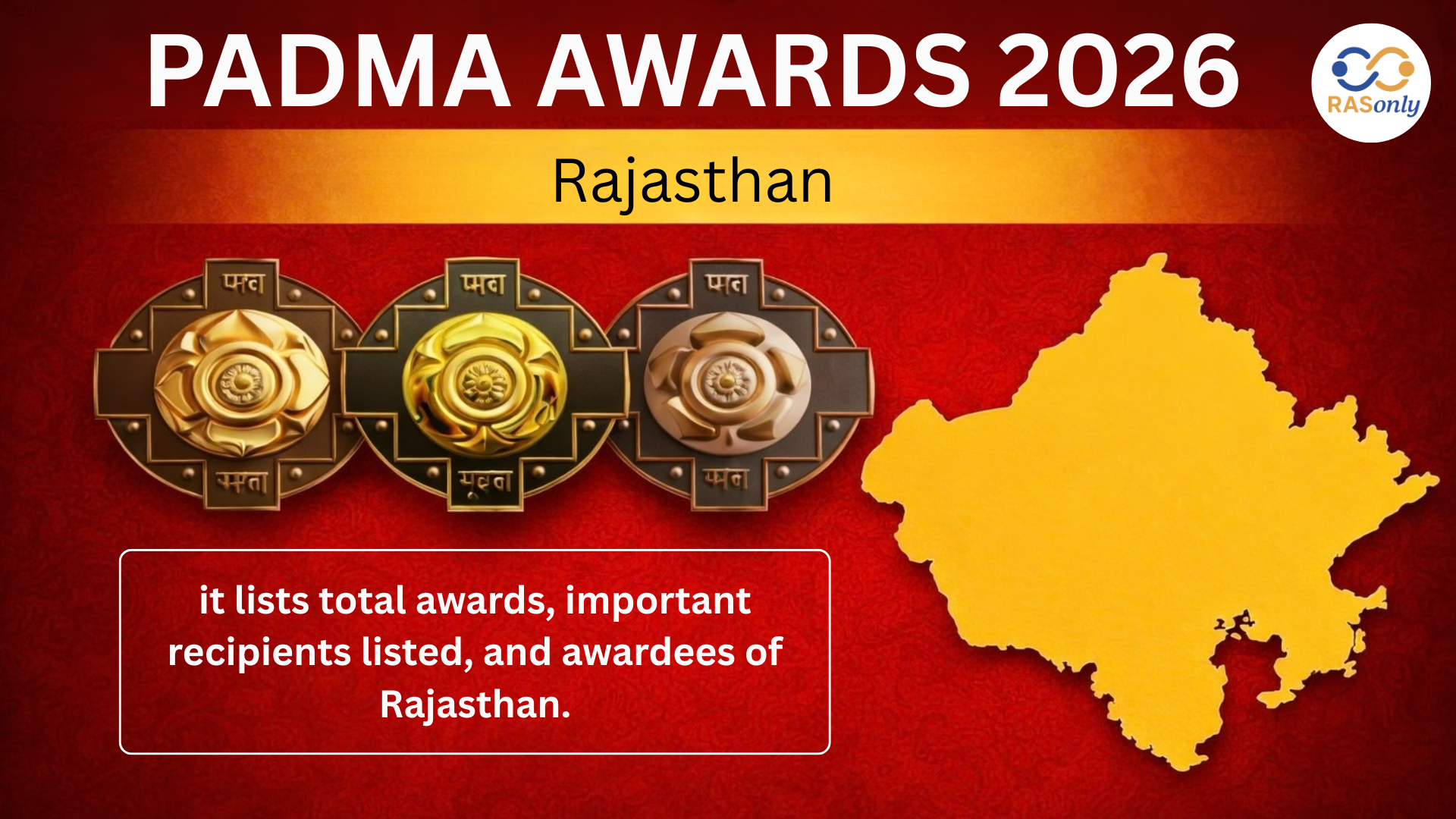
Padma Awards 2026: List, Numbers and Rajasthan Winners
January 27, 2026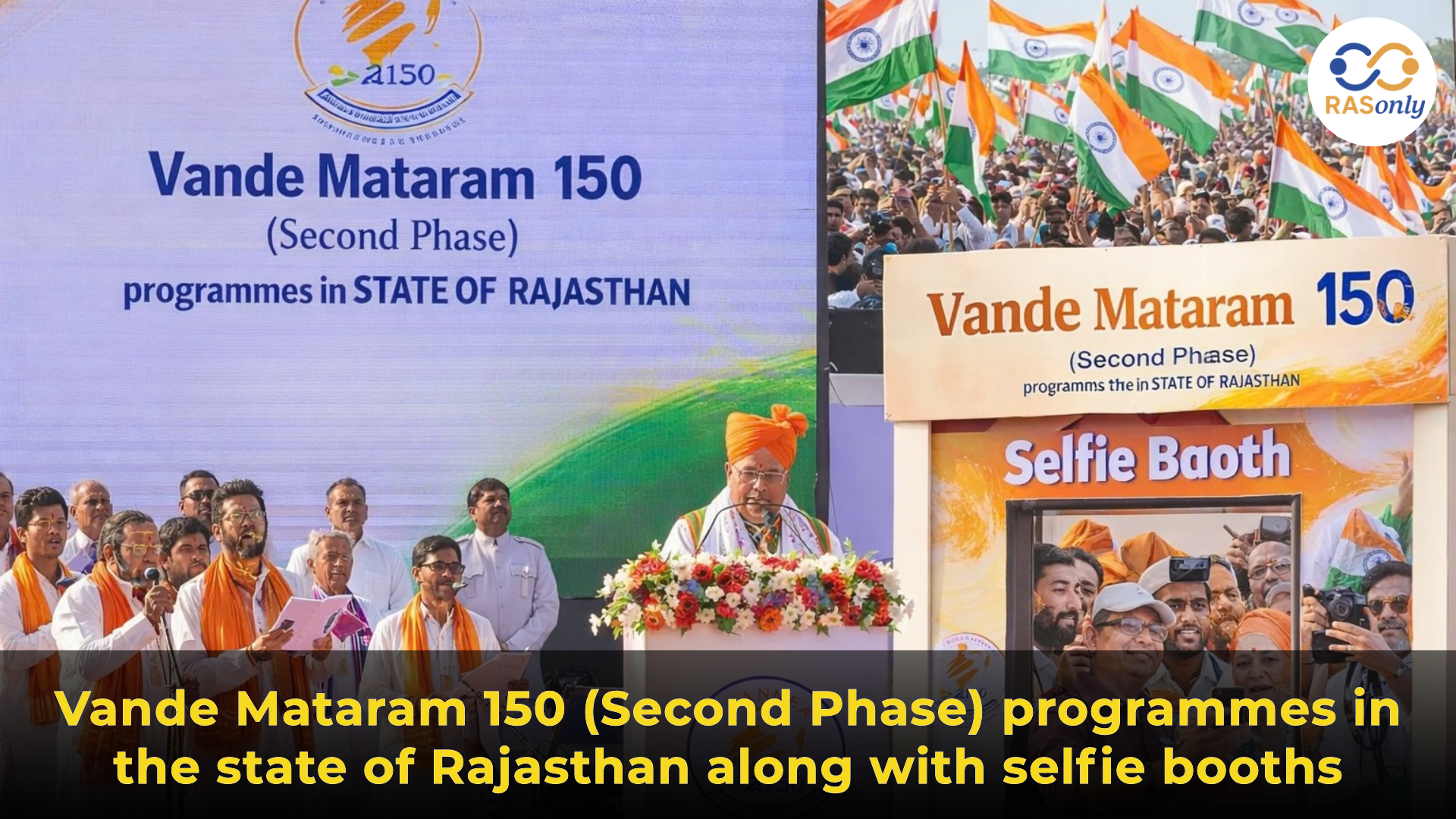
Vande Mataram 150 Second Phase Launched in Rajasthan
January 27, 2026
Rajasthan IT Games 2025-26 Launched in Jaipur
January 27, 2026👉🏻 Register Today to Join Classes! 👍🏻
- Team RASOnly -
🎯 Benefits of RASOnly Coaching:
- ✅ 1:1 Mentorship with RAS Officers
- ✅ Experienced and Expert Faculty
- ✅ Free Library Access
- ✅ Daily Minimum 4 Hours Must
- ✅ Comprehensive Study Material
- ✅ Regular Tests & Performance Analysis
- ✅ Personalized Guidance & Doubt Solving
- ✅ Online & Offline Class Options
- ✅ Affordable Fees with Quality Education
Key Highlights:
- 👉🏻 3-Day Refund Policy
- 👉🏻 New Batch Starting from 04 August
- 👉🏻 Registration Amount: Only ₹1000

